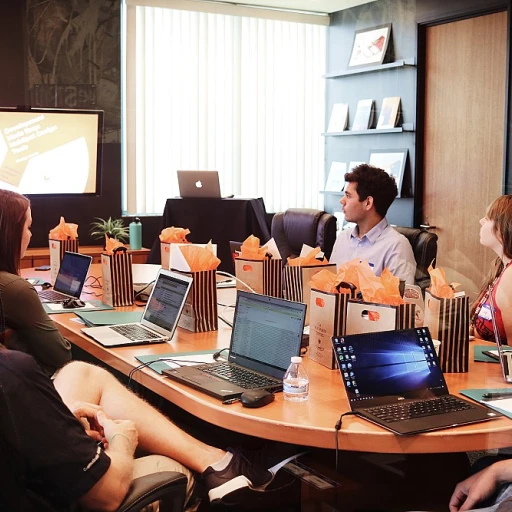
Understanding the Skills You Already Have
When transitioning from the film industry, it’s vital to acknowledge the value of the skills you've honed over the years. Despite the unique nature of film production work, many of these skills are highly transferable to other career paths. Here's a closer look at how to effectively leverage your professional experience and translate it into a resume that appeals to hiring managers beyond film.
Identifying Transferable Skills
Your journey in film production has equipped you with an array of competencies. Whether you've worked as a production assistant or in post-production, skills like multitasking, time management, and creative problem-solving are critical in any field. These abilities are sought after by employers in various industries and should feature prominently in your resume template and examples.
Consider your role-specific achievements. If you've been a key player in organizing and executing intricate movie schedules, these experiences can be reframed to demonstrate your prowess in project management and organizational skills. Highlighting these proficiencies can make your resume stand out when applying for new opportunities.
Building a Bridge with Entry-Level Positions
While you may possess years of experience in film, starting afresh in a different sector might initially require accepting entry-level positions. This step isn’t a setback but a strategic move to gain crucial industry-specific insights. Reframe your previous roles to align with the job descriptions and responsibilities that typically accompany these positions.
Creating a Professional Profile
Your presentation of skills shouldn’t end with your resume; it should extend to your online presence. An updated LinkedIn profile tailored to your desired career path is essential. Incorporate keywords like "resume example," "production resume," and "creative career" to capture the attention of recruiters looking for individuals with film backgrounds adapting to new sectors.
Each skill and experience has the potential to enrich your new career landscape. By understanding and leveraging your existing capabilities, you lay a solid foundation for exploring new opportunities and challenges. The next steps involve researching suitable career paths and tailoring your resume to meet the expectations of hiring professionals outside the film industry.
Researching New Career Paths
Identifying New Career Pathways
Transitioning from the film industry can be a daunting task, especially when considering the vast number of available career paths. However, systematic research and exploration can open up new exciting opportunities. For those coming from a background in film production, identifying career paths that leverage your existing skills is crucial. Whether you've gained organizational skills as a production assistant or honed project management capabilities through post-production work, these talents can be highly transferable. To start your journey:- Explore related fields: Consider roles in media, content creation, or even live events management. Your experience in film resume creation, producing, or coordinating parts of a film will come in handy.
- Utilize job search platforms: Websites like LinkedIn offer tools to explore career options that align with your profile. Entering keywords such as "production experience" or "creative assistant" might reveal intriguing opportunities.
- Evaluate the demand: Look into industries with a steady demand for skills similar to yours, such as tech or marketing. This can guide you in tailoring your resume template and preparing for the professional job market.
Building a Real-World Resume
Crafting an Effective Resume for Career Transition
When transitioning from the film industry to a different career, articulating your professional experience in a manner that resonates with hiring managers is crucial. A well-crafted resume serves as your first introduction in the job market, emphasizing your transferable skills gathered over the years of experience in film production.
Begin by tailoring your resume to highlight the key skills and accomplishments that align with the new career path you are venturing into. Consider what you've learned in your previous role as a production assistant, such as project management, problem-solving, team collaboration, and multitasking capabilities. These are invaluable to many industries beyond the realm of film.
Utilizing an effective resume template can provide a structured format that is both clean and professional in appearance. This is especially important if you're targeting roles where creativity might not be as highlighted as in your film production background. Including a concise yet compelling profile section at the top can make a significant impression on hiring managers. For those with limited direct experience in the new field, focusing on education, trainings, and any upskilling opportunities will be instrumental.
Moreover, don’t shy away from creating a resume pdf that showcases your creative prowess alongside your adaptability. Consider including a linkedin profile link for a more comprehensive view of your journey and accomplishments. Employment markets, such as those in Los Angeles, often appreciate a more dynamic link profile that provides an exhaustive perspective beyond a traditional resume.
For specific guidance on crafting your resume, many examples templates are available online for download. Assess these resume examples to understand how others have successfully transitioned their career utilizing their background in film production. With these strategies, making the leap to a new industry can be a rewarding transition.
Upskilling and Education Opportunities
Expanding Your Knowledge and Abilities
Transitioning from the film industry requires more than just crafting a compelling resume; it involves acquiring new skills and knowledge to thrive in your chosen career path. Whether you're venturing into production roles outside of film or exploring entirely different industries, here's how you can enhance your expertise and make yourself more appealing to hiring managers. First, identify what qualifications or certifications might be needed for the jobs you're targeting. This could include anything from learning new software that's frequently used in non-film production roles, to acquiring specific professional certifications. Online platforms offer numerous courses that can complement your past experience in film production. Consider enrolling in courses that bolster your existing skills or give you a competitive edge, such as project management for production roles or advanced editing for post-production jobs.- Practical Workshops: Attend workshops or seminars that offer hands-on experience. This can bridge the gap between your film experience and your new field. For example, a workshop focusing on digital marketing project management can enhance your production skills in a business context.
- Networking and Mentorship: Connect with professionals outside the film industry to gain insights on current trends and required skills. A mentor can provide guidance on which abilities to develop further.
- Tailored Education: Look into educational programs specifically designed for career transition, particularly those that focus on broadening professional experience. This might involve online classes related to your desired field.
Networking Beyond the Film Industry
Expanding Your Network Beyond the Silver Screen
Transitioning from the film industry to a new career path involves more than just updating your resume. One of the most crucial steps is expanding your professional network beyond the confines of film production. While your experience in film has likely provided you with a robust set of skills, connecting with professionals in other industries can open doors to new opportunities.
Here are some strategies to help you build a diverse network:
- Leverage LinkedIn: Update your LinkedIn profile to reflect your career transition. Highlight your skills and experiences that are transferable to other industries. Join groups related to your new career interests and engage in discussions to increase your visibility.
- Attend Industry Events: Look for conferences, workshops, and seminars in your area of interest. These events are excellent opportunities to meet professionals and learn about the latest trends in your desired field.
- Informational Interviews: Reach out to individuals working in roles you aspire to. Request informational interviews to gain insights into their career paths and the skills needed for success. This can also help you understand what hiring managers are looking for in a candidate.
- Utilize Alumni Networks: If you attended a college or university, tap into their alumni network. Many institutions offer resources for career changers, including networking events and job boards.
- Volunteer or Freelance: Consider taking on volunteer or freelance work in your new field. This not only helps you gain relevant experience but also allows you to meet professionals who can provide guidance and potentially recommend you for job openings.
Networking is not just about finding a job; it's about building relationships that can support your career growth. As you transition from a film production assistant or any other role within the industry, these connections can provide valuable insights and opportunities that might not be immediately apparent.
Overcoming Challenges in Career Transition
Facing the Hurdles of Career Transition
Transitioning from the film industry to a new career path can be daunting. The challenges are real, but understanding them can help you navigate this journey more effectively. Here are some common obstacles you might encounter and strategies to overcome them.
- Translating Film Experience: One of the biggest challenges is translating your film production experience into terms that resonate with hiring managers in other industries. Your resume should highlight key skills like project management, teamwork, and creative problem-solving. Use examples from your film resume to illustrate your abilities in a way that aligns with the job description.
- Adapting to New Work Environments: Moving from a creative, often informal film set to a more structured corporate environment can be a culture shock. It's important to research the new industry thoroughly and understand its professional norms. Consider reaching out to a mentor or joining industry-specific forums to gain insights.
- Overcoming Skill Gaps: While you may have a wealth of experience in film production, there may be technical skills or certifications required in your new field. This is where upskilling and education opportunities come into play. Look for courses or workshops that can bridge these gaps and make you a more competitive candidate.
- Building a New Professional Network: Networking beyond the film industry is crucial. Attend industry events, join LinkedIn groups, and connect with professionals who can offer guidance and potential job leads. A strong network can provide support and open doors to new opportunities.
- Dealing with Rejection: Rejection is a part of any job search, but it can be particularly challenging when you're transitioning careers. Keep refining your resume and cover letter, and consider seeking feedback from peers or career coaches. Persistence is key, and each application is a step closer to your goal.
Remember, every career transition comes with its own set of challenges. By preparing for these hurdles and leveraging your existing skills, you can make a successful shift from the film industry to a new and rewarding career path.













